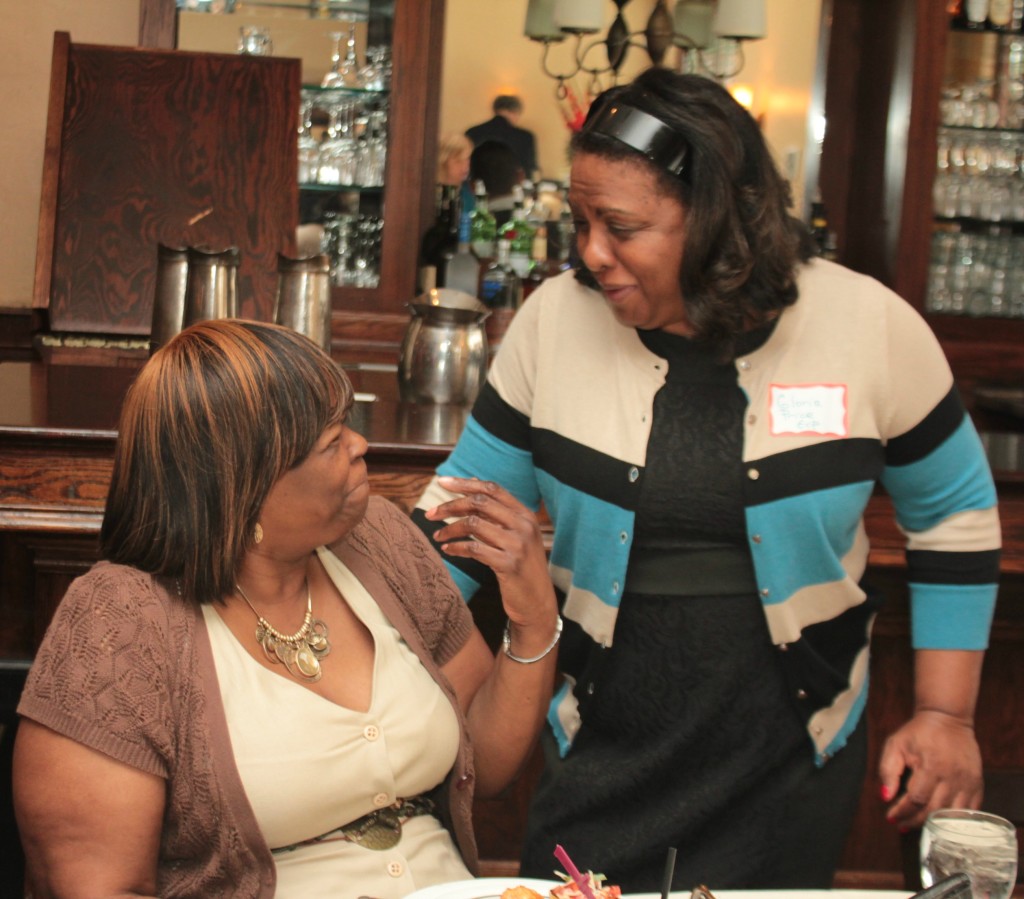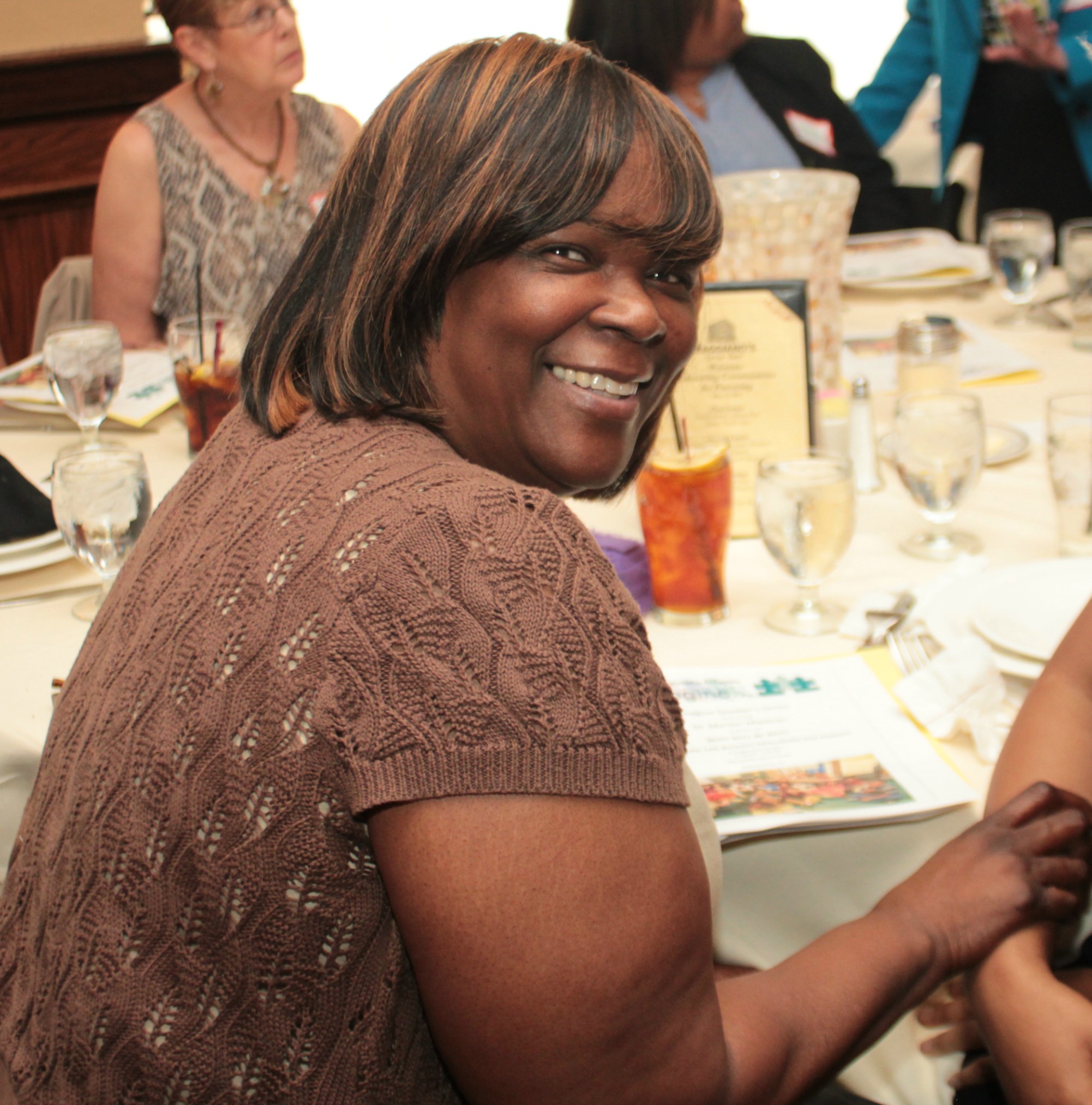
Charmaine pictured with ECP VP of Programs and Operations, Gloria Price
As a clinical supervisor, McFadden reveals her interactions with clients weren’t very “hands-on” and that most communication only occurred when residents required disciplinary action or when a woman was being discharged from the facility. McFadden’s background includes an MA in Counseling/Psychology and a Bachelor’s in Healthcare Management and she felt she couldn’t fully use her expertise to empower and help the women in that particular position. As a facilitator she says the relationship with her clients is different:
“It gave me chance to continue in my passion enriching the lives of women who have come into a bad situation due to economics, a bad relationship and other challenging circumstances.”
“As a facilitator I can be more hands on and have a chance to not only give them the book knowledge, but personal experience as to various ways to parent and encourage them to use the parenting skills they already have, but just lack the confidence or the consistency to put into practice.”
“I’m also able to see the results of the things that I am instilling into their lives immediately. As a clinical supervisor you hardly ever see the results of the care that a client receives in a residential facility, at least not right away.”
McFadden also cites a flexible schedule being one of the best advantages of working for ECP. Customizing a schedule has allowed the mother of 3 to pursue other interests that a traditional work schedule would just not be able to accommodate. McFadden currently works as a Behavioral Specialist independent contractor. Her work includes assessing students who exhibit troubling behavior and she has worked at Eleanor C. Emlen School, James G. Blaine Elementary School and Gilliam Elementary School to name a few. McFadden sees children who have been diagnosed with ADHD and oppositional defiance disorder and supports parents struggling to improve their behavior. The balance of working in both prevention and intervention allows her to take what she learns from each position to help parents build healthier relationships with their children.
“There are many children being diagnosed with attention deficit disorder which can be attributed to a lot of different things. When the child is younger it’s easier to teach them techniques to help them redirect their own behavior. As they get older it becomes more challenging because they become accustomed to not knowing how to ignore things that can be a distraction and as they get older getting up and walking around because they can’t sit still becomes a normal part of their behavior. It’s really about teaching them different techniques on how to control their own behavior.”

